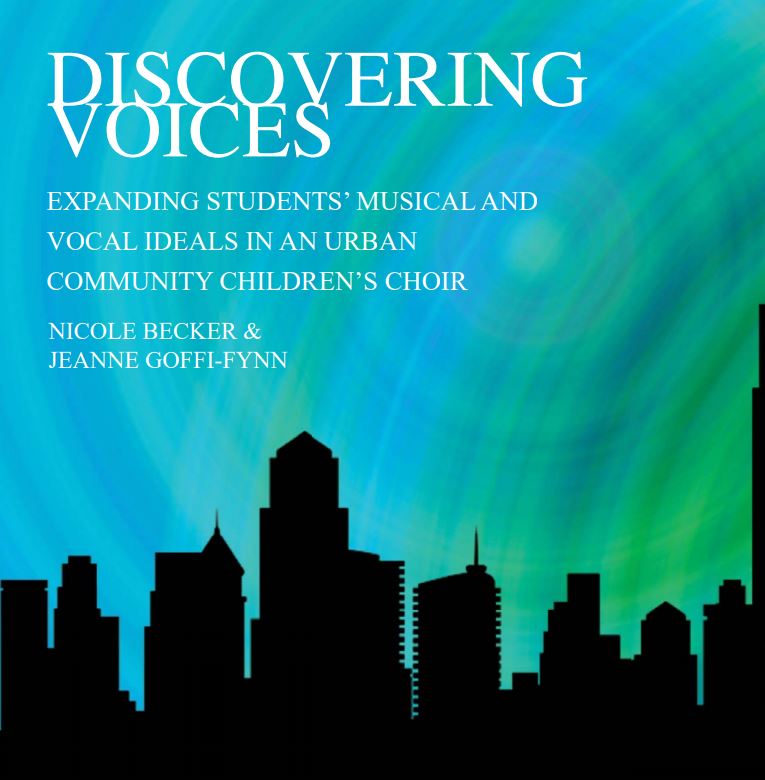
The February 2016 issue of Choral Journal features an article titled “Discovering Voices: Expanding Students’ Musical and Vocal Ideals in an Urban Community Children’s Choir” by Nicole Becker and Jeanne Goffi-Fynn. You can read it in its entirety online at acda.org/choraljournal. Click “Search Archives” and choose February 2016 from the dropdown menu. Below is an excerpt of the article.
_____________________________
“Singing here I feel trapped and oppressed in one voice,” Jewel, age 12, wrote in her first choir reflection.
An experienced gospel singer at church, Jewel wrote this shortly after joining a choir in which, for the first time, she was encouraged to engage her head voice. The intensity of her reaction illustrates the significance of the issue this article addresses: frequently, as choir directors seek to broaden students’ vocal and musical palettes, students perceive a mismatch between their teachers’ ideals and their own. It is critical to acknowledge this mismatch and the tension it creates, because the way students sing and the way they respond to choral training are influenced tremendously by the way they want to sing.
Singers whose musical ideals diff er from those of their choral directors will only engage in choir if they feel welcomed, respected, and empowered. This article offers an approach to choral training that seeks to broaden children’s musical ideals and abilities by training them in healthy, flexible vocal technique within a rehearsal environment that values and nurtures students’ diverse forms of musicality. The goal is to empower young people to discover their voices. Literally this means unleashing the potential of their singing voices.
In a larger, figurative, sense, it means leading singers to realize that their voices—their opinions, interests, ideas, and other authentic expressions of themselves—matter. This approach has been developed through our work with a non-auditioned community chorus for children ages 10-14, based at an urban graduate school of education.
Voice training is personal work. Our voices provide our first and most deeply instinctual way of communicating in our environment, and our voices are thoroughly shaped by our conscious and unconscious sense of who we are. How we speak and sing are not only vehicles for our self-expression, they are an embodiment of it. As Mora Andrews writes, “Our identity is projected through our voice.”
Thus, we approach voice work as a holistic process involving myriad interrelated psychological, social, and physiological factors. Working together as the music director and the voice specialist of a children’s choir, we address these overlapping factors as we work with our students over time, seeking combinations of approaches that will enable children to discover their voices and share them with pride. Vocal work is integrated with other musical work throughout the process; sometimes we address vocal technique directly, and other times we cultivate singers’ natural musical responses in order to guide their approach to singing. We seek to create an environment in which students feel safe and encouraged to share their voices fully.
_____________________________
Read the rest of this article (and more!) in the February 2016 issue of Choral Journal, available online at acda.org.


Leave a Reply
You must be logged in to post a comment.